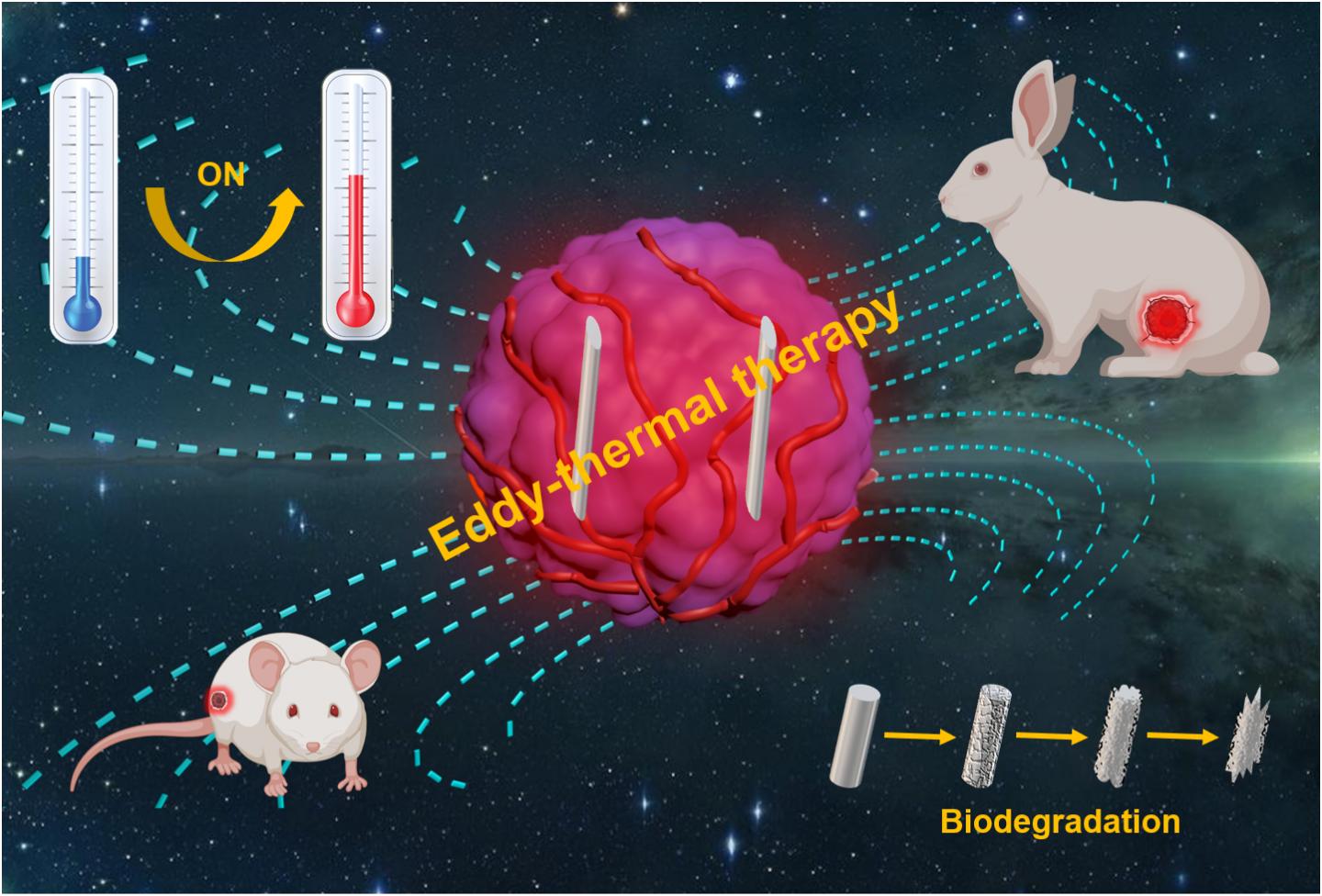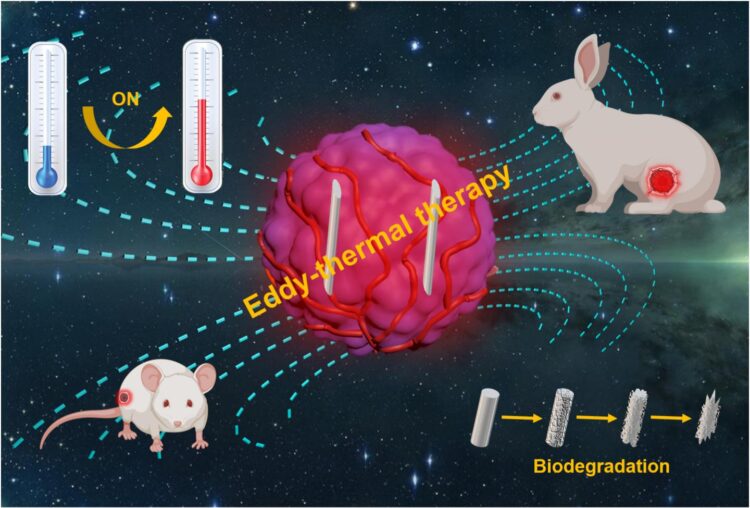
Credit: ©Science China Press
Magnetic hyperthermia therapy (MHT) as a noninvasive local treatment strategy is able to ablate tumors using an alternating magnetic field (AMF) to heat up magnetocaloric agents (e.g., magnetic nanoparticles) administered into the tumors. For clinical applications, there is still a demand to find new magnetocaloric agents with strong AMF-induced heating performance and excellent biocompatibility. In addition to magnetic nanoparticles, whose AMF induced heating mechanism is mainly due to the heating power of relaxation loss, bulk conductors such as metals can also be heated under an AMF by the eddy current effect, in which an induced current is generated when a bulk conductor is placed in an AMF. Therefore, it would be significant and interesting to use the eddy thermal effect of bulk metal for tumor ablation. As a kind of biocompatible and biodegradable material, magnesium (Mg) and its alloys have been extensively used in the clinic as an implanted metal.
Recently, the eddy thermal effect of the magnesium alloy (MgA) could be employed for MHT to effectively ablate tumors was reported by Profs. Zhuang Liu and Liang Cheng from Soochow University. Under low-field-intensity AMFs, MgA rods could be rapidly heated, resulting in a temperature increase in nearby tissues. Such AMF-induced eddy thermal heating of MgA could not only be used to kill tumor cells in vitro, but also be employed for effective and accurate ablation of tumors in vivo. In addition to killing tumor tissue in mice, VX2 tumors of much larger sizes growing in rabbits after implantation of MgA rods could also be eliminated after exposure to an AMF, illustrating the ability of MgA-based MHT to kill large-sized tumors. Moreover, the implanted MgA rods showed excellent biocompatibility and ?20% of their mass was degraded within three months. This work not only broadens the application of MgA in biomedicine, but also provides a new strategy for accurate and effective tumor treatment under a low-field-intensity AMF in a minimally invasive manner, applicable even for deep-set and large tumors. Considering the wide clinical use of implantable MgA devices, such a strategy holds great promise in clinical translation.
###
This research received funding from the National Basic Research Programs of China (973 Program), the National Natural Science Foundation of China.
See the article:
Biodegradable magnesium alloy with eddy thermal effect for effective and accurate magnetic hyperthermia ablation of tumors
Nailin Yang, Fei Gong, Liang Cheng*, Huali Lei, Wei Li, Zongbin Sun, Caifang Ni, Zhanhui Wang, and Zhuang Liu*
Natl Sci Rev 2020; doi: 10.1093/nsr/nwaa122
https:/
The National Science Review is the first comprehensive scholarly journal released in English in China that is aimed at linking the country’s rapidly advancing community of scientists with the global frontiers of science and technology. The journal also aims to shine a worldwide spotlight on scientific research advances across China.
Media Contact
Liang Cheng
[email protected]
Related Journal Article
http://dx.





